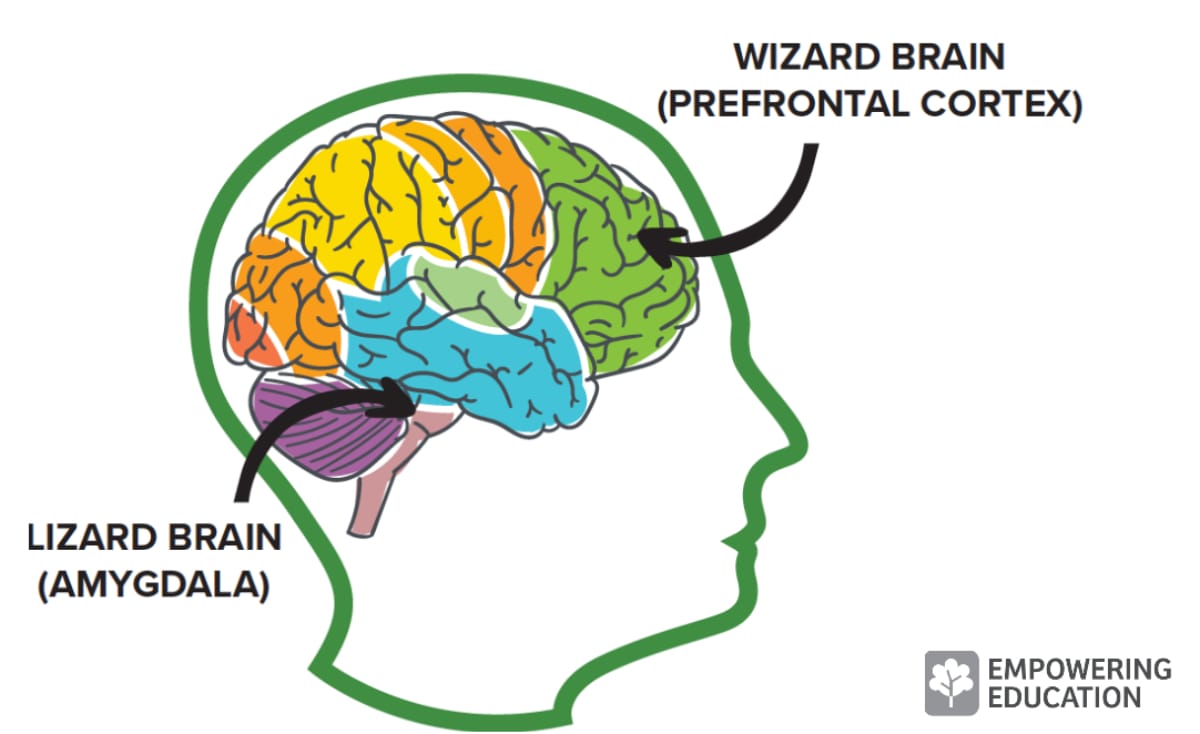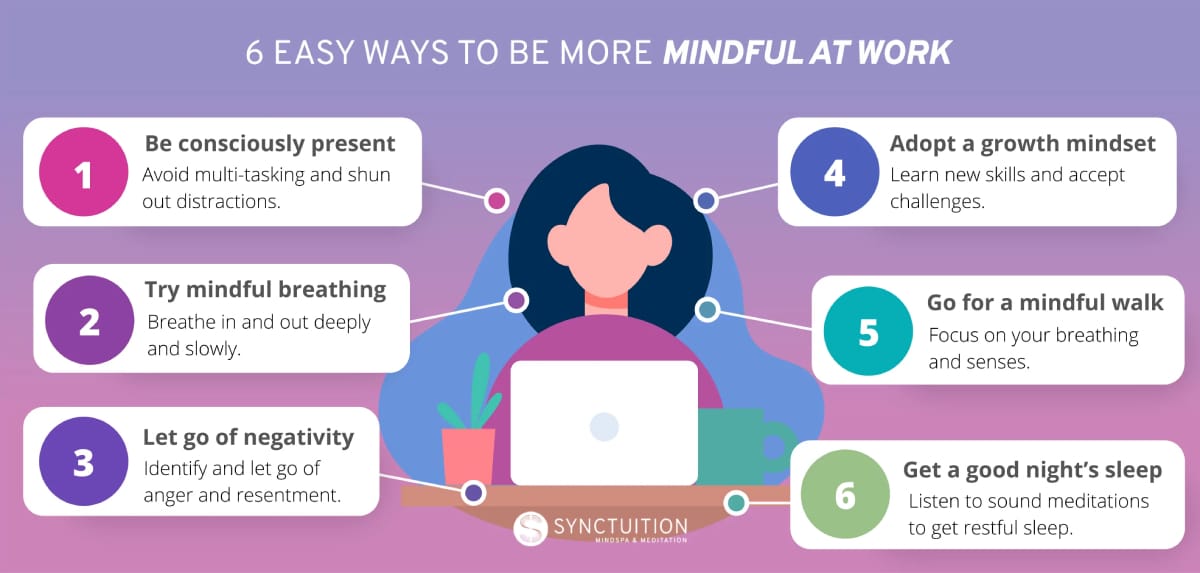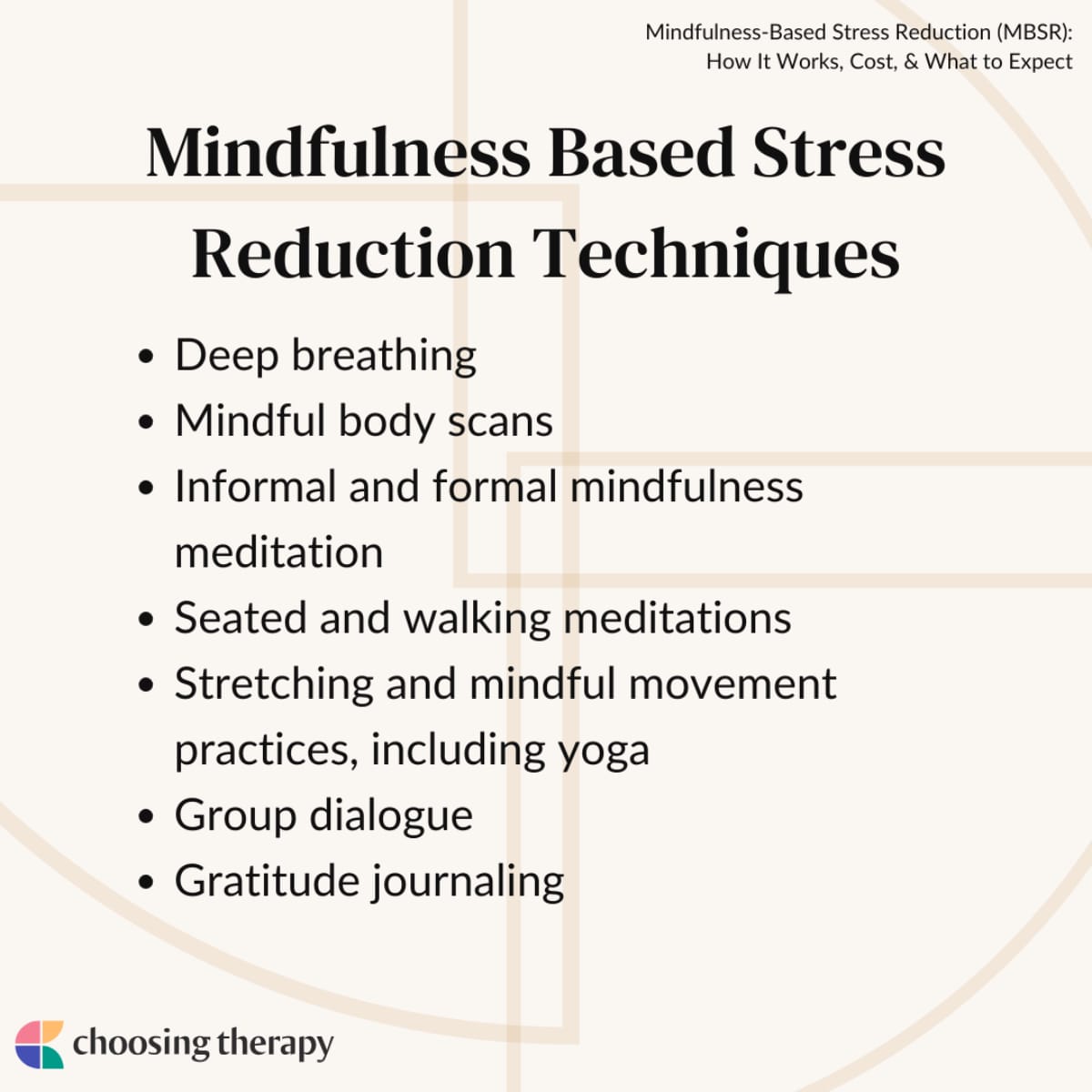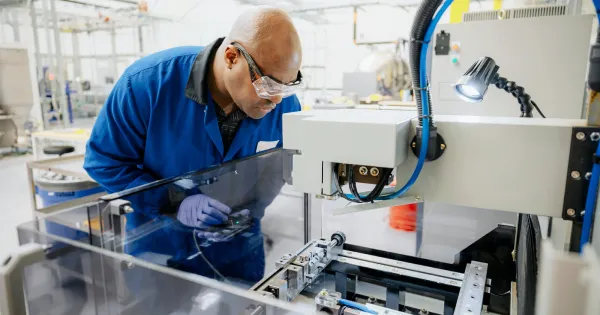4 Reasons You Need [Mindfulness] in the Workplace
![Cosmico - 4 Reasons You Need [Mindfulness] in the Workplace](/content/images/size/w1200/2024/02/mindfulness_in_the_workplace_success_2024_cosmico_business_tech_insights.jpg)
Mindfulness might seem at odds with the hectic pace of modern workplaces, but its value in managing stress and improving focus is becoming increasingly recognized. By encouraging moment-to-moment awareness, mindfulness helps employees engage fully without feeling overwhelmed, enhancing decision-making and creativity. The practice, rooted in Buddhist traditions, is now a critical tool for addressing workplace challenges, contributing to higher productivity and better emotional intelligence.
Research underscores the benefits of mindfulness, showing it reduces stress and improves concentration and overall well-being. As businesses face constant change and uncertainty, incorporating mindfulness can create a more resilient and innovative workforce. This shift not only boosts individual performance but also supports a healthier, more productive organizational culture, making mindfulness an essential strategy for modern corporate success.
Reason 1) Enhances Focus and Concentration

Digital distractions are incessantly vying for our attention, the ability to focus and maintain concentration at work is more valuable than ever. Mindfulness, with its emphasis on present-moment awareness, offers a powerful antidote to the fragmented attention that characterizes much of our daily lives. This section explores how mindfulness meditation not only bolsters our capacity for focus but also transforms our approach to work, making us more efficient, engaged, and ultimately more productive.
Understanding the Impact of Distractions
Distractions in the workplace, ranging from incessant email notifications to the allure of social media, significantly hinder productivity and the quality of our work. The constant switching between tasks, a phenomenon known as "context switching," can lead to increased cognitive load, stress, and ultimately, a decrease in the quality of our output. Mindfulness helps mitigate these effects by training the mind to maintain a laser-like focus on the task at hand, reducing the tendency to get sidetracked by external stimuli or internal thought processes.
The Science Behind Mindfulness and Focus
Research in the field of cognitive neuroscience has shown that regular mindfulness practice can lead to structural changes in the brain, particularly in areas associated with attention, memory, and executive function. One key study found that just eight weeks of mindfulness training was enough to increase the density of gray matter in the prefrontal cortex, the brain region associated with higher-order brain functions such as attention, problem-solving, and decision-making. By creating a state of relaxed alertness, mindfulness enables individuals to stay focused on their work for longer periods, enhancing productivity and reducing the time taken to complete tasks.

Practical Tips for Cultivating Mindfulness at Work
Integrating mindfulness into the workday doesn't require extensive training or significant chunks of time. Here are some practical tips for cultivating mindfulness to enhance focus and concentration:
- Start with Short Meditation Sessions: Begin with 5-10 minutes of mindfulness meditation each day. Use guided meditation apps specifically designed for focus and concentration.
- Mindful Breathing Breaks: Take short breaks throughout the day to practice mindful breathing. This can be as simple as pausing for a minute or two to focus solely on your breath, helping to center your mind and bring you back to the present.
- Single-Tasking Over Multitasking: Embrace the art of single-tasking. Focus on completing one task at a time with full attention, rather than juggling multiple tasks simultaneously.
- Mindful Listening: Practice mindful listening in meetings and conversations. This means fully concentrating on what the other person is saying without formulating your response while they're speaking. Mindful listening can enhance your ability to absorb information and respond more thoughtfully.
The Benefits Extend Beyond Work
The benefits of improved focus and concentration extend far beyond just enhanced productivity at work. Employees who practice mindfulness report lower levels of stress and anxiety, improved sleep quality, and a greater overall sense of well-being. These personal benefits contribute to a more positive and harmonious workplace environment, further underscoring the value of mindfulness in the professional sphere.

By embracing mindfulness, individuals and organizations can unlock a powerful tool for enhancing focus and concentration, leading to a multitude of benefits that ripple through every aspect of work and personal life. Next, we'll explore how mindfulness serves as a potent stress-reducer, offering strategies to manage workplace anxiety and create a calmer, more resilient workforce.
Reason 2) Reduces Stress and Anxiety

Today stress and anxiety have become commonplace. The pressures of meeting deadlines, managing workload, and balancing professional with personal life can take a significant toll on employees' mental and physical health. This environment not only affects individual well-being but also impacts organizational productivity and morale. Mindfulness emerges as a key strategy in combating these challenges, offering a pathway to greater resilience and peace of mind.
The Prevalence of Workplace Stress
Workplace stress is not a new phenomenon, but its implications are becoming increasingly recognized as a critical concern for organizations worldwide. Stress leads to a host of negative outcomes, including decreased job satisfaction, higher turnover rates, and a rise in health-related absences. Anxiety, a close companion of stress, further exacerbates these issues, leading to a cycle of decreased productivity and increased personal suffering.
How Mindfulness Mitigates Stress
Mindfulness meditation teaches practitioners to approach their experiences with openness and non-judgment, allowing them to observe their thoughts and feelings without becoming overwhelmed by them. This perspective shift is crucial in managing stress and anxiety. By creating a state of calm awareness, mindfulness helps individuals recognize and diffuse stressors instead of reacting impulsively or destructively.
Scientific Evidence Supporting Mindfulness for Stress Reduction
A substantial body of research supports the effectiveness of mindfulness in reducing stress and anxiety. One of the most significant studies in this area is the Mindfulness-Based Stress Reduction (MBSR) program, developed by Dr. Jon Kabat-Zinn. MBSR and similar mindfulness programs have been shown to significantly lower levels of cortisol, the stress hormone, and improve participants' subjective experiences of stress and anxiety. These findings highlight the potential of mindfulness as a tool for enhancing emotional resilience and well-being in the workplace.
Incorporating Mindfulness into the Workplace to Reduce Stress
Adopting mindfulness practices within the workplace can be straightforward and requires minimal resources. Here are some practical ways to integrate mindfulness into the daily work routine:
- Implement Regular Mindfulness Sessions: Organizations can offer regular mindfulness sessions or workshops for employees. These could be guided meditations, yoga classes, or discussions on mindfulness techniques.
- Create Quiet Spaces: Designate quiet spaces in the office where employees can go to meditate, breathe, or simply take a moment to reset. These areas can provide a sanctuary for employees to practice mindfulness and recharge.
- Encourage Mindful Breaks: Promote the idea of taking mindful breaks throughout the day. Encourage employees to step away from their desks, practice deep breathing, or go for a mindful walk.
- Mindfulness Training Programs: Invest in mindfulness training programs that provide employees with tools and techniques to manage stress and anxiety effectively. These programs can be tailored to the unique needs of your workforce and integrated into existing wellness initiatives.

The Ripple Effect of Mindfulness on Organizational Culture
When employees practice mindfulness, the benefits extend beyond individual well-being to influence the broader organizational culture. A workforce that is less stressed and more emotionally resilient contributes to a positive, supportive work environment. This cultural shift can lead to improved communication, enhanced teamwork, and a greater capacity for innovation and problem-solving.
As we've seen, mindfulness offers a powerful approach to reducing stress and anxiety in the workplace, creating a culture of well-being and resilience. Moving forward, we will examine how mindfulness improves emotional intelligence, further enhancing interpersonal relationships and leadership skills within the professional setting.
Reason 3) Improves Emotional Intelligence

Emotional intelligence (EI), the ability to understand and manage one's own emotions as well as recognize and influence the emotions of others, is increasingly recognized as a pivotal skill in the workplace. It underpins effective communication, leadership, and collaboration, contributing to a more harmonious and productive organizational culture. Mindfulness practices play a crucial role in enhancing EI by creating self-awareness, empathy, and emotional regulation.
The Connection Between Mindfulness and Emotional Intelligence
Mindfulness enhances emotional intelligence in several key ways. First, by promoting self-awareness, it enables individuals to better understand their own emotional responses and triggers. This awareness is the cornerstone of emotional intelligence, allowing for more deliberate actions and responses rather than reactive behaviors. Second, mindfulness cultivates empathy, an essential component of EI, by encouraging an open, non-judgmental awareness of others' feelings and perspectives.
Research on Mindfulness and Emotional Intelligence
Studies have demonstrated a positive correlation between mindfulness and various aspects of emotional intelligence. For instance, individuals who engage in regular mindfulness practices report higher levels of empathy and improved ability to navigate social interactions. Additionally, mindfulness training has been shown to enhance emotional regulation, enabling individuals to manage stress and negative emotions more effectively. These findings underscore the value of mindfulness in developing the emotional competencies crucial for success in the workplace.
Mindfulness Techniques to Enhance Emotional Intelligence
Incorporating mindfulness into daily routines can significantly improve EI. Here are some practical techniques:
- Mindful Listening: Practice active, mindful listening to fully engage with others, showing empathy and understanding. This involves listening without planning what to say next, truly hearing the speaker's message, and responding thoughtfully.
- Emotional Awareness Meditation: Engage in meditation focused on recognizing and accepting your emotions. This practice can help identify emotional patterns and triggers, enhancing emotional self-awareness.
- Gratitude Journaling: Cultivate a practice of gratitude by regularly journaling about things you're thankful for. This practice can shift focus away from negative emotions and create a positive outlook.
- Body Scan Meditation: Perform regular body scan meditations to become more attuned to physical sensations associated with emotions. This heightened awareness can aid in recognizing and managing emotions as they arise.
The Impact of Enhanced Emotional Intelligence
Improving emotional intelligence through mindfulness has far-reaching implications in the workplace. Leaders with high EI are better equipped to manage teams, navigate conflicts, and inspire loyalty and motivation. Employees with strong emotional intelligence contribute to a more positive, collaborative work environment, enhancing overall organizational performance. Furthermore, high EI is associated with better stress management, job satisfaction, and well-being, highlighting the integral role of mindfulness in personal and professional development.

By creating mindfulness, individuals and organizations can unlock significant improvements in emotional intelligence, enhancing interpersonal dynamics and leadership effectiveness. As we move to the final section, we'll explore how mindfulness creates creativity and innovation, further illustrating the transformative impact of mindfulness in the workplace.
Reason 4) Encourages Creativity and Innovation

Innovation is a key driver of success, the ability to think creatively and develop novel solutions is indispensable. Creativity, however, is not merely a spontaneous gift; it's a skill that can be cultivated. Mindfulness, with its emphasis on present-moment awareness and non-judgmental observation, emerges as a powerful tool to enhance creative thinking and create an innovative workplace culture.
Mindfulness and the Creative Process
Mindfulness practices, by encouraging a state of open, non-judgmental awareness, can significantly enhance the creative process. This mental state allows individuals to observe their thoughts and feelings without getting attached, thereby facilitating the free flow of ideas and reducing the fear of judgment that often stifles creativity. Furthermore, mindfulness can improve cognitive flexibility, enabling individuals to see problems from different perspectives and come up with innovative solutions.
Scientific Insights into Mindfulness and Creativity
Research has shown that mindfulness meditation can have a positive impact on creative output. One study found that participants who engaged in mindfulness practices displayed an enhanced ability to generate novel ideas, a key aspect of creativity. Another key finding is that mindfulness can reduce cognitive rigidity, making it easier to break free from traditional ways of thinking and explore new approaches. These studies underscore the potential of mindfulness to unlock creative potential and create innovation within organizations.
Practical Ways to Encourage Creativity Through Mindfulness
Incorporating mindfulness into the workplace to boost creativity can be achieved through various means:
- Regular Mindfulness Meditation: Encourage regular mindfulness meditation sessions to help clear the mind and enhance focus, creating a fertile ground for creative ideas to emerge.
- Mindful Walking Meetings: Replace traditional sit-down meetings with walking meetings in a natural setting, if possible. The combination of physical activity, nature, and mindfulness can stimulate creative thinking and problem-solving.
- Creative Mindfulness Workshops: Organize workshops that combine mindfulness practices with creative exercises, such as brainstorming sessions or design thinking workshops, to encourage innovative thinking.
- Mindful Breaks for Idea Generation: Promote the practice of taking short, mindful breaks specifically for the purpose of reflecting on work challenges and generating new ideas, away from the distractions of digital devices.
The Impact on Organizational Innovation
By embedding mindfulness into the organizational culture, businesses can create an environment that nurtures creativity and innovation. Mindful practices can help employees overcome the fear of failure, a significant barrier to innovation, by creating a more accepting and open-minded approach to new ideas. Moreover, mindfulness enhances teamwork and collaboration, essential components of the innovative process, by improving communication and empathy among team members.
As we've explored, mindfulness serves as a catalyst for creativity and innovation, essential qualities for organizational growth and competitiveness. By creating a mindful workplace, organizations can unlock their employees' creative potential, drive innovation, and adapt more effectively to the challenges of the modern business environment.
Final Thoughts
Mindfulness in the workplace goes beyond personal wellness to become a core element of organizational success. It enhances focus, reduces stress, improves emotional intelligence, and encourages creativity. As its value is increasingly recognized, mindfulness is becoming integral to developing resilient, innovative, and compassionate professional environments.
Adopting mindfulness is a journey that benefits both individuals and organizations, enhancing employee well-being, job satisfaction, productivity, and innovation. Embracing it transforms workplaces into spaces not just for production but for growth and thriving.
Key Takeaways
| Reason | Key Takeaways | Practical Tips |
|---|---|---|
| 1. Focus and Concentration | Boosts attention and productivity. | - Short meditation - Mindful breaks |
| 2. Stress and Anxiety Reduction | Promotes calmness and stress management. | - Regular mindfulness - Quiet meditation areas |
| 3. Emotional Intelligence | Enhances self-awareness and emotional control. | - Mindful listening - Gratitude journal |
| 4. Creativity and Innovation | Improves cognitive flexibility and creativity. | - Mindful meetings - Creative workshops |
Top Books on Mindfulness
- "Wherever You Go, There You Are: Mindfulness Meditation in Everyday Life" by Jon Kabat-Zinn
- "The Miracle of Mindfulness: An Introduction to the Practice of Meditation" by Thich Nhat Hanh
- "Mindfulness in Plain English" by Bhante Henepola Gunaratana





